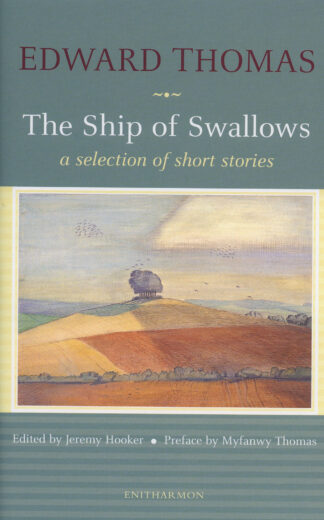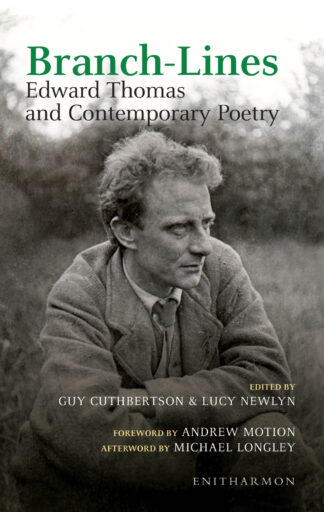Edward Thomas
Edward Thomas was born in London in 1878 and educated at St Paul’s School and Lincoln College, Oxford. While still an undergraduate, he published his first book, The Woodland Life, and married Helen Noble, with whom he had three children. Thomas became a professional author, producing over twenty prose books, as well as a novel (The Happy-Go-Lucky Morgans), a biography of Richard Jefferies, and critical studies of Maurice Maeterlinck, Lafcadio Hearn, George Borrow, Walter Pater, Swinburne and Keats. He also introduced editions of Borrow, George Herbert, Christopher Marlowe and William Cobbett, and wrote hundreds of book reviews and articles.
Encouraged by Robert Frost, he began writing poetry in 1914 producing a remarkable body of poetry in the next few years. Only a few poems were published in his lifetime, under the pseudonym Edward Eastaway; Poems by Edward Thomas was published in October 1917 and the first edition of his Collected Poems in 1920. Thomas joined the Artists’ Rifles in 1915. He was killed on Easter Monday 1917 during the Battle of Arras.


The Ship of Swallows
Edward Thomas’s stories formed an important stage in his imaginative development, and constitute a significant achievement. His fiction includes stories reflecting his personal quest for spiritual and social values, which have considerable psychological interest; and versions of traditional Celtic and Norse tales and English proverbs. In both original and traditional tales Thomas explores the relation between the human world and the realm of nature. His stories were, as he said, written under a ‘real impulse’, and they represent his whole effort to shape imaginative responses to fundamental questions of life and death, the self, and reality. The Ship of Swallows...
£15.00
Branch-Lines
Branch-Lines
When Edward Thomas died in the First World War, very few of his poems had been published, but he is now recognised as one of the finest and most influential poets of the last century. Although often referred to as ‘a poet’s poet’, his writing has an almost universal appeal. He wrote accessibly, on traditional themes – the natural world, human relationships, transience and mortality. And yet his poetry is alive with the critical intelligence that came from years of writing non-fiction and reviewing verse. Branch-Lines captures the range of Thomas’s achievement, not least by combining poetry with prose. In this...
£15.00


